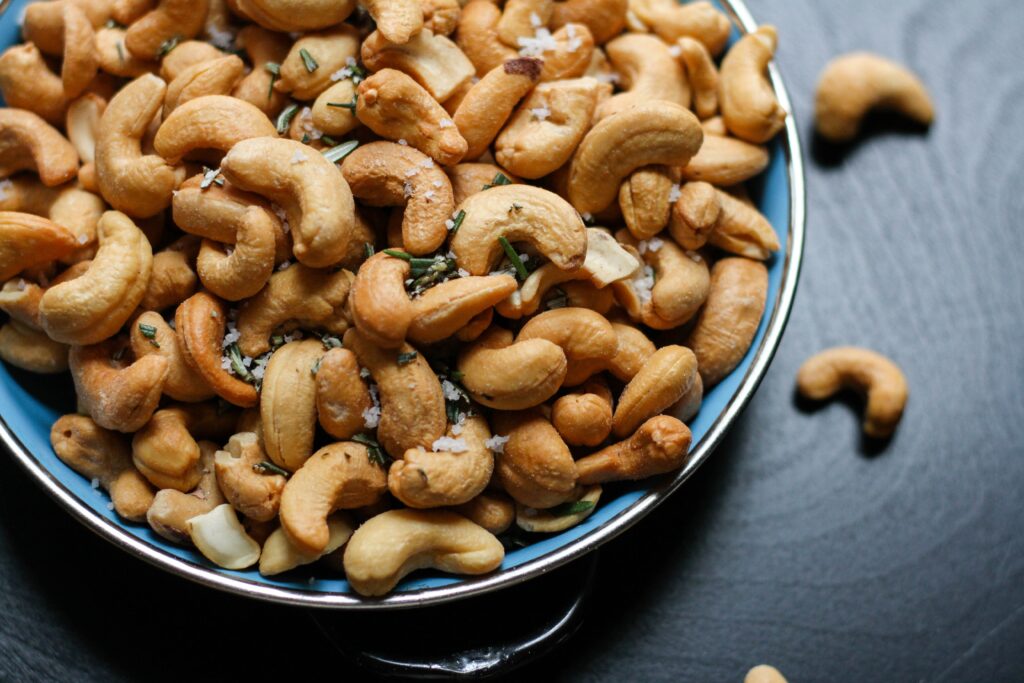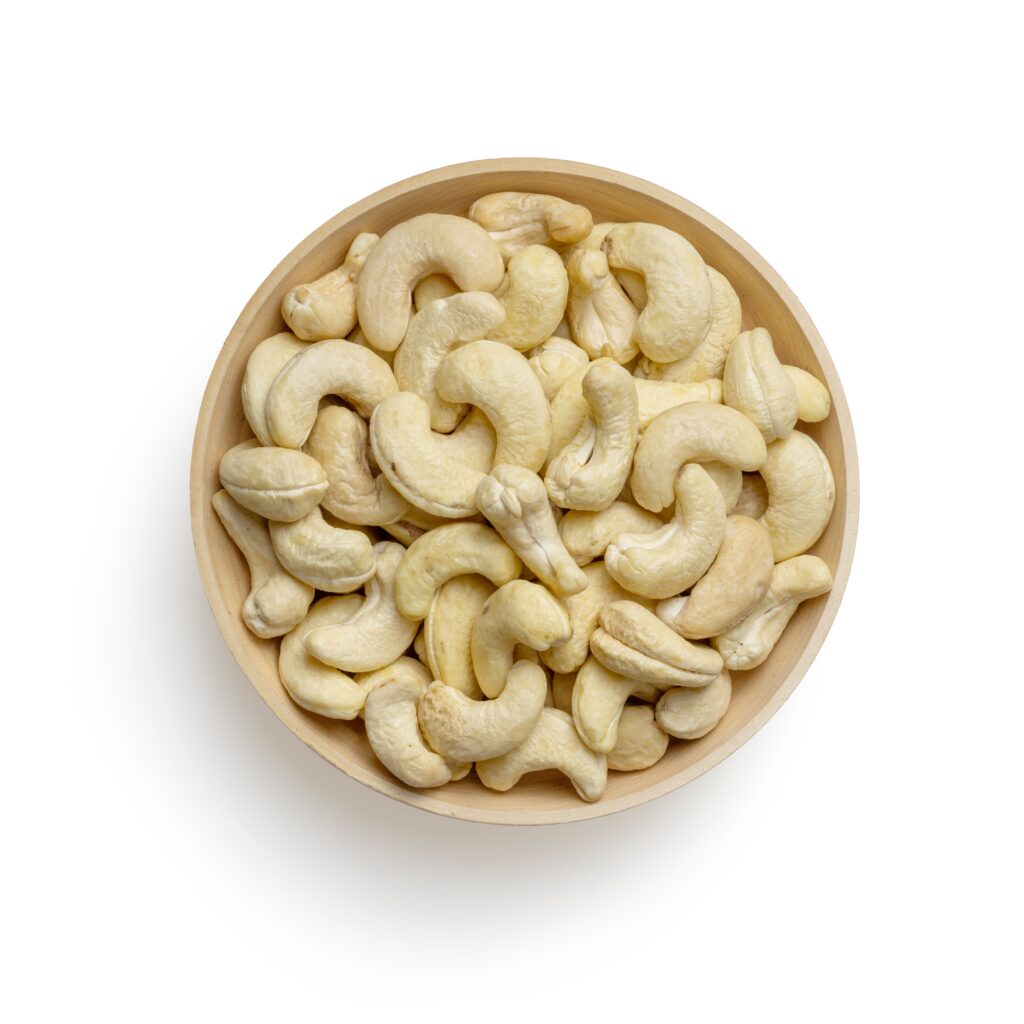Cashew nuts, derived from the cashew tree (Anacardium occidentale), are not only delicious but also offer a plethora of health benefits, making them an excellent addition to one’s diet, especially during the winter months. Rich in nutrients, these kidney-shaped nuts contribute to overall well-being in various ways. Mohit Tandon from Burr Ridge suggested some Health Benefits of Cashew Nuts in Winter.

Protein
First and foremost, cashew nuts are a powerhouse of essential nutrients. They are a good source of protein, healthy fats, vitamins, and minerals. A serving of cashews provides a considerable amount of protein, making them a valuable option for those following vegetarian or vegan diets. The protein content is vital for maintaining and repairing tissues, supporting muscle health, and boosting the immune system. It is particularly important during the winter season. – Mohit Tandon Chicago
Magnesium
One notable nutrient found in cashews is magnesium. Magnesium plays a crucial role in several bodily functions, including muscle and nerve function, blood glucose control, and bone health. During winter, when the risk of colds and flu is higher, maintaining a strong immune system is paramount. Magnesium contributes to immune function, helping the body fight off infections and illnesses.
Omega-3
Moreover, cashews are an excellent source of monounsaturated and polyunsaturated fats, including omega-3 and omega-6 fatty acids. These healthy fats are essential for maintaining cardiovascular health. It is particularly relevant during winter when cold weather can put additional strain on the heart. Consuming cashews in moderation as part of a balanced diet may contribute to heart health by reducing bad cholesterol levels and supporting overall cardiovascular function. – Mohit Tandon USA
Vitamin E
In addition to healthy fats, cashews contain a variety of vitamins, including vitamin E, which acts as a potent antioxidant. Antioxidants play a crucial role in neutralizing free radicals in the body, helping to protect cells from damage. The winter season, with its colder temperatures and drier air, can sometimes lead to skin issues. The antioxidant properties of vitamin E in cashews contribute to skin health by protecting against oxidative stress and promoting a radiant complexion.
Vitamin B
Cashews are also rich in other vitamins, including B-complex vitamins such as thiamine, riboflavin, niacin, and folate. These vitamins play essential roles in energy metabolism, nerve function, and the formation of red blood cells. Ensuring an adequate intake of B-complex vitamins is vital during the winter months when energy levels may fluctuate, and the body needs extra support to combat seasonal challenges.
Zinc and Iron
Furthermore, cashews contain minerals like zinc and iron, which are crucial for various physiological processes. Zinc is known for its immune-boosting properties, making it a valuable nutrient during the winter season when the risk of infections is higher. Iron, on the other hand, is essential for preventing anemia and ensuring optimal oxygen transport in the body. Including cashews in the diet can contribute to meeting the body’s requirements for these essential minerals.

The winter season often brings with it a desire for warm and comforting foods. Cashews can be a delicious and satisfying snack, providing a crunchy texture and a rich, buttery flavor. Incorporating them into meals or enjoying them as a standalone snack can help curb cravings and provide a nutritious alternative to less healthy options. However, it’s essential to practice portion control, as nuts are calorie-dense. – Mohit Tandon Burr Ridge
Beyond their nutritional profile, cashews offer additional health benefits that make them particularly relevant during the winter months. One such benefit is their potential role in supporting mental health. Cashews contain amino acids like tryptophan, which serves as a precursor to serotonin, a neurotransmitter that plays a key role in mood regulation. Maintaining optimal serotonin levels can contribute to a positive mood and help combat the winter blues or seasonal affective disorder (SAD).
Moreover, the magnesium content in cashews may have a calming effect on the nervous system, potentially aiding in stress management and promoting better sleep. Adequate sleep is crucial for overall health and well-being. During the winter, when daylight hours are shorter, ensuring quality sleep becomes even more important. Consuming cashews as a part of an evening snack may contribute to a restful night’s sleep.

It’s worth noting that while cashews offer numerous health benefits, individuals with nut allergies should exercise caution and consult with a healthcare professional before incorporating them into their diet. Additionally, it’s essential to choose unsalted and unprocessed cashews whenever possible to maximize their health benefits and minimize unnecessary additives. – Mohit Tandon Burr Ridge
In conclusion, the health benefits of cashew nuts make them a valuable addition to one’s diet, especially during the winter season. From providing essential nutrients like protein, healthy fats, vitamins, and minerals to supporting immune function, cardiovascular health, and mental well-being, cashews offer a holistic approach to winter wellness. Including a moderate amount of these delicious nuts in a balanced diet can contribute to overall health and help individuals navigate the challenges that the winter season may bring.
